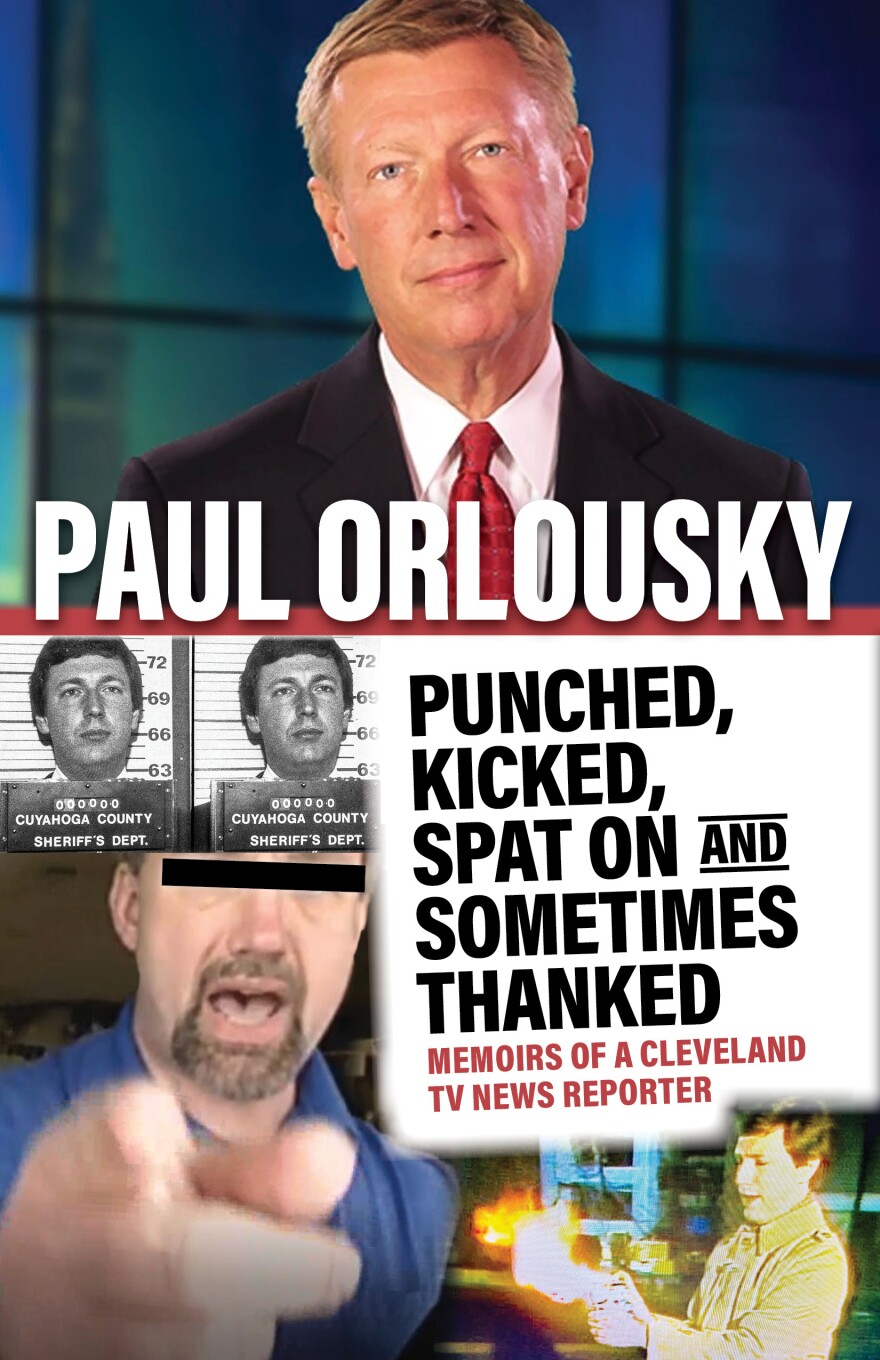Cleveland reporter Paul Orlousky retired earlier this year after five decades in news. Now, he’s back with a new book looking back at his career.
He says the title -- “Punched, Kicked, Spat On and Sometimes Thanked” -- comes from the hazards of reporting stories such as one in the 1980s when he found that police officers assigned to a hospital weren’t working the hours they claimed.
“I put the story on the air and 35 of them were suspended. Two of them got the bright idea to pay me back. So, they wrote some fake tickets on me, so there was a warrant out for me. It was a stressful thing, but it put me on the map in Cleveland [and] people thought of me, now, more as a Carl Monday or a Tom Meyer – some of the seasoned investigators in town.”
Orlousky also remembers other controversial stories in his new book, such as the Ariel Castro kidnapping case, the Cleveland corruption scandal involving Jimmy Dimora, and the murder of supermarket magnate Julius Kravitz. He also managed to get tipped off about a secret visit by Prince to Cleveland at the height of his fame. That story also inspired part of the new book’s title, given how the singer’s bodyguard put a stop to any press coverage.
Changing times
Orlousky says the TV news business has changed a lot since he started.
“TV news was white males and if there was a woman in the show, she’d be the ‘Woman’s Editor.’ That started to change, and then there were very few African-Americans; and then that started to change. And someone with your name – they wouldn’t have considered you 20 years ago. So from that regard, journalism and broadcasting in general is opening; they're going to become irrelevant unless they reflect the community that they’re trying to serve.”
Orlousky was recently on the Buckeye Book Fair's "Modern Ohio" virtual panel, available here.






